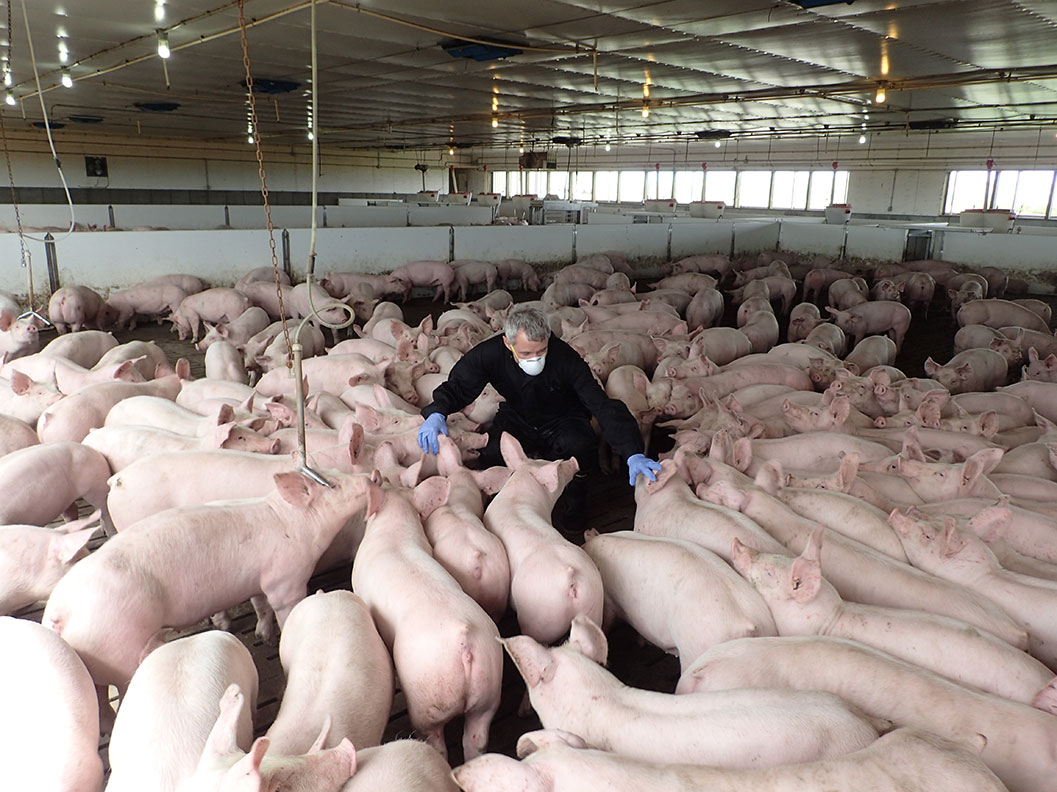Good and Bad May Come From African Swine Fever

I must admit, being a grain guy, the global outbreak of African swine fever is something I have only paid passing attention to, but the issue is gaining traction. According to my American colleagues with Professional Farmers of America, this may become an event “you’ll tell your grandkids about.”
An industry professional who does business in the country recently told U.S. Pro Farmer that incidents of the disease are underreported. Just how bad is the ASF outbreak? No one knows, including China.
The Chinese government does not pay farmers for lost animals, so there is no incentive to report. Officially, China reported 115 ASF outbreaks to the World Organization for Animal Health, covering all commercially significant swine producing regions. But the issue is much, much bigger than that.
“Canada will host the first ever international forum on African swine fever at the end of April in Ottawa in an effort to talk about the importance of working together on this type of threat”
Taking a toll
While it is still unclear if ASF outbreaks will continue to be reported with the same frequency and geographic distribution, the disease has already taken a toll on China’s swine and pork production for 2019. By the end of 2019, the government forecast is for total swine inventory will be down 13 per cent to 374 million head.But industry sources signal a ballpark number much worse. China’s hog herd may be down as much as 30 to 40 per cent based on feed usage.
Note this issue alone can account for a notable portion of China’s lessened feed needs this year, which includes soybean, canola, peas and cereals.
The practice of backyard hog farming, often including the feeding of food scrap and food waste, has made it nearly impossible to contain the spread ASF. And China is not alone on this. The setup is the same across Southeast Asia where 70 per cent of the world’s pigs are raised. It is only a matter of time before the virus spreads across the region.
Unlike many other diseases and viruses, ASF has a 100 per cent mortality rate. That means there is no opportunity to build immunity in other animals. And with no vaccine available today or expected for years, it is tough to see where the spread of ASF ends. ASF has already moved into Vietnam and Mongolia, and Taiwan reports that 7.5 per cent of pork products confiscated from travelers this month tested positive for ASF.
Keeping the disease out
There have been no reported cases of ASF in North America. Keeping ASF out of North America has become a new priority for U.S. and Canadian agriculture authorities.Just last week, U.S. border agents seized around one million pounds of illegally imported pork from China over suspicions that it may contain ASF.
Canada will host the first ever international forum on African swine fever at the end of April in Ottawa in an effort to talk about the importance of working together on this type of threat. The federal government announced new funding of up to $31 million to increase the number of detector dogs at Canadian airports to help prevent illegally imported meat products from entering into the country.
Besides losses due to the spread of ASF, herd liquidation is rampant in China as producers try to get out in front of an outbreak. In time, pork shortages are likely to develop throughout Southeast Asia, which will require the region to import more pork. That may create a marketing opportunity for Canadian and U.S. pork industries.
Bottom line
The global hog sector is on high alert due to the African swine fever sweeping through Asia right now. As a result, China needs less soybean, canola, peas and cereals for feed. The benefit to pork producers in Canada and the U.S. is potential new markets, as long as the virus stays off the continent.
Mike Jubinville of Pro Farmer Canada offers information on commodity markets and marketing strategies. Call 204-654-4290 or visit www.pfcanada.com to find out more about his services











